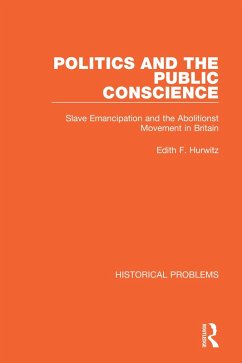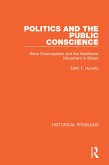It was the vitality of British Protestantism in its relationship with the state which largely accounts for the achievement of emancipation and the success of the British Anti-Slavery Movement. This book, originally published in 1873, analyses the factors which made the Anti-Slavery Movement so successful. It exposes the roots of its passionate support and explains How the government came to accept the objectives of religious idealists. It sets the abolition of slavery in the larger perspective of British history.
Dieser Download kann aus rechtlichen Gründen nur mit Rechnungsadresse in A, B, BG, CY, CZ, D, DK, EW, E, FIN, F, GR, HR, H, IRL, I, LT, L, LR, M, NL, PL, P, R, S, SLO, SK ausgeliefert werden.









